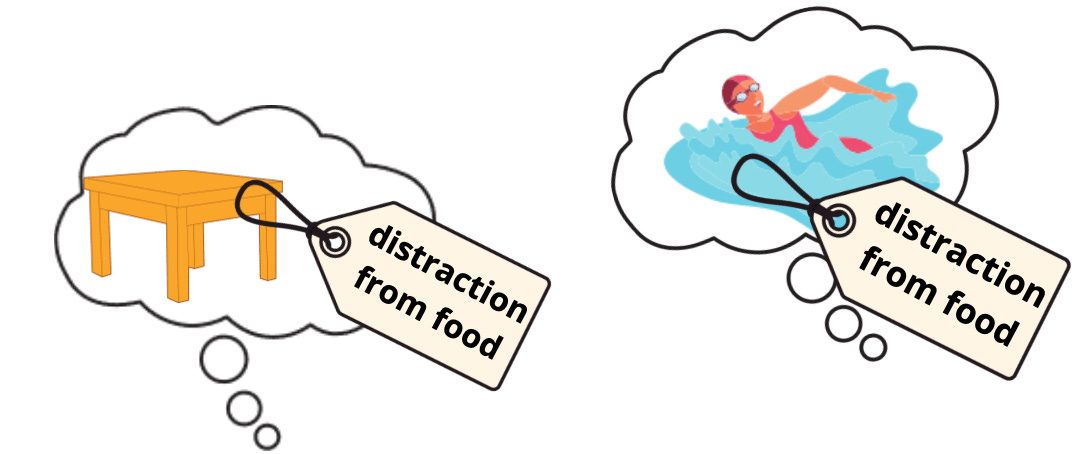Every day, you wake up and start a new diet. ''This is the day'', you tell yourself, ''From this day and on, I will not binge. I will not ruin my diet.'' You have a nice breakfast that fits in with your meal plan. Afterward, you are full but not satisfied. You still have the other breakfast options on your mind. So you have coffee, which curbs your appetite for a while. An hour later, you start thinking about what you will have for lunch.
When lunchtime comes around, you force yourself to eat the lunch you had planned for yourself. You are not satisfied with your lunch either. You immediately start thinking about what you can have as an afternoon snack. Only an hour later, you give in; you find yourself in the kitchen, opening and closing the fridge door, going through your pantry. After eating everything you can get your hands on, you tell yourself ''There must be something wrong with me''.
Most of your days look like this, some days you make it through the day without binging but that does not last more than two days. Every day, you only have one thing on your mind: food. No matter what you do, you just can't stop thinking about food.
You are stuck in a diet-binge cycle.
You have tried everything.
You feel like there is something wrong with you.
At this point, you are convinced that you are addicted to food.
I am here to explain to you what is going on.
There is nothing wrong with you and you are not addicted to food. What you experience actually has a simple explanation: the Rebound Effect!
But… What is that?
Here comes the text-book example of the Rebound Effect:
When I tell you not to think of a pink elephant, all you can think of is a pink elephant.
When we try so hard to suppress a thought, we actually cause the thought to come back stronger. In some cases, it becomes the only thing we can think of.
If we think of the Rebound Effect in the context of dieting, it makes sense that we keep binge eating when we try to not think about food. When we are dieting, we often try to suppress our thoughts about food. We have a meal plan to follow and we cannot afford to constantly think about brownies and risk craving some. If we are ''not allowed'' to eat chips, it is not so smart to daydream about chips either. Thus we suppress our food-related thoughts and cravings to stick with our meal plan, which makes sense as a goal-oriented behavior. So, why does this almost always backfire?
When we tell our brain not to think about food, our brain looks for other concepts to distract us from food. However, while doing so, any concept our brain finds is tagged as ''distraction from food'' in our mind, ironically still including ''food'' in our thoughts. This is the part that is explained by the Rebound Effect.
The rest is the evolutionary system in our body trying to keep us alive: Once we have ''food'' in our thoughts, the cravings start getting stronger: Our brain feeling restricted, makes us imagine how delicious the food is and how happy we would be after eating. Then the moment we have access to anything to eat, our restricted body clings onto the food and does not let go.
Now you know why you can't stop thinking about food: It is because you are restricting yourself. There is nothing wrong with you. It is just how your brain reacts to your attempts to avoid food. The more you restrict yourself, the more you are going to be stuck in the cycle of dieting and binge eating. Any restriction will come back to you as a binge. Do not restrict. Allow yourself to eat. Satisfy your cravings and watch them go away on their own.






